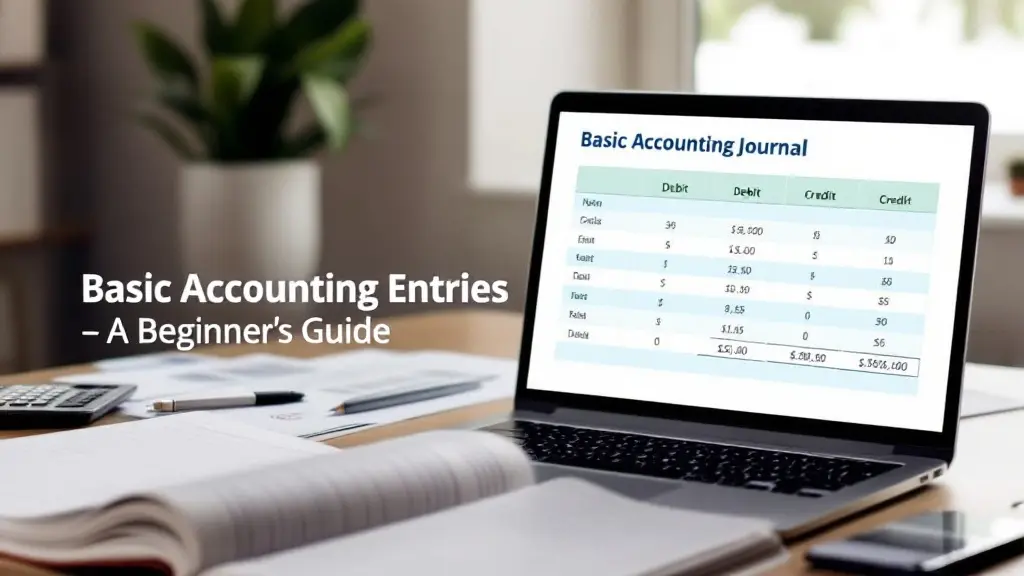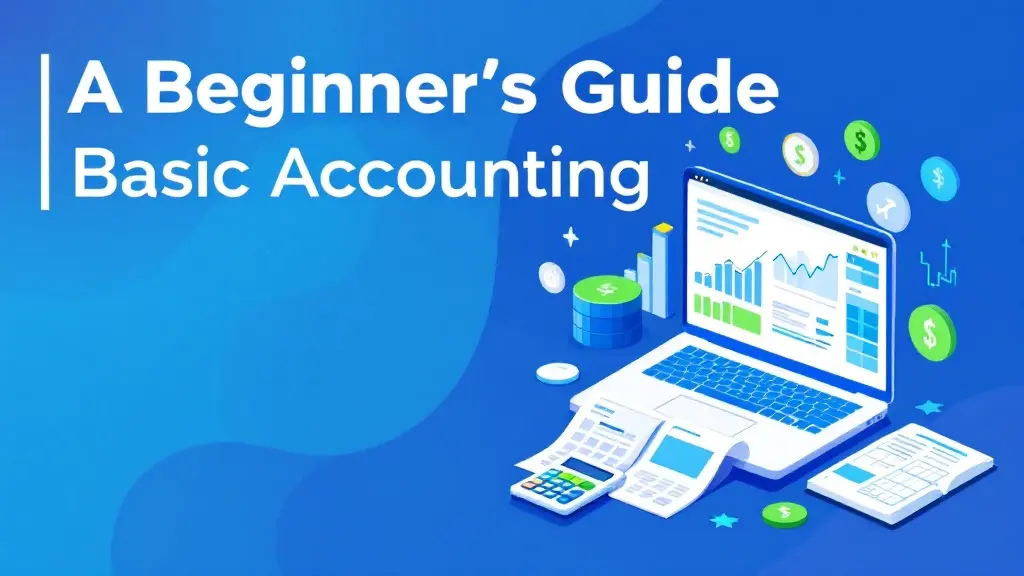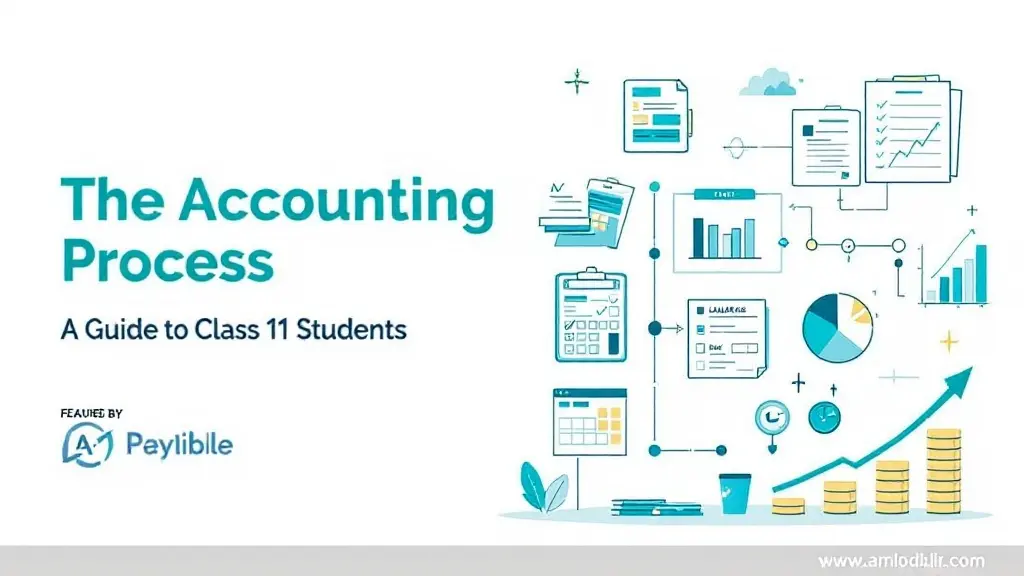Basic Accounting Information: A Beginner’s Guide to Understanding the Essentials
Table of Contents
Most Read
[fusion_dropcap class="fusion-content-tb-dropcap"]I[/fusion_dropcap]n today’s fast-paced world, accounting is essential for both businesses and individuals to track their financial health. Whether you’re starting a small business, managing personal finances, or just trying to understand how the financial world works, a solid grasp of basic accounting concepts is invaluable. In this blog post, we’ll cover the fundamental aspects of accounting, from key terms to basic principles, to give you a strong foundation.
Table of Contents
- What is Accounting?
- The Importance of Accounting in Business
- Key Accounting Terms You Should Know
- The Basic Accounting Principles
- The Accounting Equation
- Different Types of Accounting
- How to Keep Track of Financial Transactions
- Conclusion: Getting Started with Accounting
1. What is Accounting?
Accounting is the process of recording, classifying, and summarizing financial transactions to provide useful information for decision-making. Whether for personal finance or business purposes, accounting helps in understanding how money flows in and out, ensuring that financial records are accurate, complete, and timely.
At its core, accounting is all about tracking financial activities. It involves monitoring income, expenses, assets, and liabilities, and presenting them in a clear, understandable manner, typically through financial statements like the balance sheet, income statement, and cash flow statement.
2. The Importance of Accounting in Business
Accounting isn’t just for accountants—it’s essential for business owners, managers, and even entrepreneurs to understand. Here’s why:
- Informed Decision Making: Good accounting helps businesses make sound decisions. Whether it’s expanding operations, launching new products, or securing funding, financial insights guide decisions.
- Legal Compliance: Businesses must comply with tax laws, and proper accounting ensures that they meet tax obligations without errors or delays.
- Financial Health: Tracking revenues and expenditures helps businesses evaluate their financial health, identify inefficiencies, and plan for the future.
- Investor Relations: Accurate accounting attracts investors and partners by showing transparency and a commitment to sound financial management.
In short, accounting is the backbone of every financial decision a business makes.
3. Key Accounting Terms You Should Know
Before diving deeper into accounting, let’s go over some essential terms that will help you understand the basics:
- Assets: Resources owned by a business, such as cash, inventory, or equipment.
- Liabilities: What a business owes, including loans, accounts payable, and debts.
- Equity: The owner’s claim on the business assets after liabilities are deducted (also known as owner’s equity or net worth).
- Revenue: Income generated from the sale of goods or services.
- Expenses: The costs incurred in running a business, like rent, salaries, and utility bills.
- Profit: The financial gain after all expenses are deducted from revenue. This can be gross profit (revenue minus cost of goods sold) or net profit (after all expenses).
Familiarizing yourself with these terms will make understanding financial reports much easier.
4. The Basic Accounting Principles
Accounting is based on a set of principles that ensure consistency and accuracy in financial reporting. Here are some of the fundamental principles:
- Accrual Principle: Revenue is recognized when earned, and expenses are recognized when incurred, regardless of when cash is received or paid.
- Consistency Principle: Once a business adopts an accounting method, it should continue using it in the future for consistency in financial reporting.
- Going Concern Principle: This assumes that a business will continue to operate indefinitely unless there is evidence to the contrary.
- Conservatism Principle: Accountants should not overstate income or assets but instead opt for a conservative approach when uncertain about a transaction’s outcome.
- Matching Principle: Expenses should be matched with the revenues they help generate during the same period.
These principles help ensure that financial statements accurately reflect a company’s financial position.
5. The Accounting Equation
The accounting equation is the foundation of double-entry bookkeeping, which ensures that the books are always balanced. The equation is:
Assets = Liabilities + Equity
This equation is the basis for all accounting transactions. For example, when a business buys an asset (e.g., equipment), it either incurs a liability (e.g., a loan) or reduces equity (e.g., using cash reserves).
By maintaining this balance, accounting ensures that every transaction is properly recorded in two accounts, helping to prevent errors and discrepancies.
6. Different Types of Accounting
Accounting is a broad field, and there are various branches that focus on specific aspects of financial reporting. Here are the most common types:
- Financial Accounting: Focuses on preparing financial statements for external users like investors, creditors, and regulators. It follows strict guidelines set by regulatory bodies like GAAP (Generally Accepted Accounting Principles) or IFRS (International Financial Reporting Standards).
- Managerial Accounting: Involves providing information for internal decision-making, such as budgeting, cost analysis, and performance evaluations.
- Tax Accounting: Specializes in preparing tax returns and ensuring compliance with tax laws. It requires an in-depth understanding of tax regulations and rules.
- Forensic Accounting: Focuses on investigating financial discrepancies and fraud, often involving legal proceedings.
Each branch serves a distinct purpose but collectively helps provide a comprehensive understanding of financial activities.
7. How to Keep Track of Financial Transactions
Effective accounting involves keeping track of every financial transaction. Here’s how businesses can do it:
- Record Transactions: Every transaction, whether it’s a sale, purchase, or payment, should be recorded in a journal or ledger. This step is essential for maintaining an accurate record of financial activity.
- Use Accounting Software: Many businesses today use accounting software (e.g., QuickBooks, Xero, or Tally) to automate and streamline the process. These tools simplify record-keeping and ensure that everything is accounted for.
- Prepare Financial Statements: Based on the transactions recorded, businesses prepare financial statements such as the income statement, balance sheet, and cash flow statement. These documents summarize the business’s financial performance over a period.
- Regularly Review Financials: It’s essential to regularly review your financial reports. This helps detect discrepancies early and allows businesses to stay on top of their financial health.
Whether you’re managing personal finances or running a large company, maintaining accurate records is key to sound financial management.
8. Conclusion: Getting Started with Accounting
Accounting may seem intimidating at first, but once you grasp the basics, it becomes a valuable tool for managing finances effectively. Whether you’re an entrepreneur, a small business owner, or just looking to improve your personal financial knowledge, understanding key accounting concepts is essential.
Start by familiarizing yourself with accounting terms and principles, and then move on to mastering the accounting equation and the different types of accounting. Using accounting software can also simplify the process and make your financial tracking more efficient.
Remember, accounting is not just about crunching numbers; it’s about understanding the story behind those numbers. With the right knowledge, you can make better financial decisions, improve your business’s profitability, and plan for a secure financial future.
By following these basic steps, you’ll have a solid foundation in accounting that will serve you well in your personal and professional life. Keep learning, stay organized, and watch your financial literacy grow!
Visit Our Website : Accounting24.in









